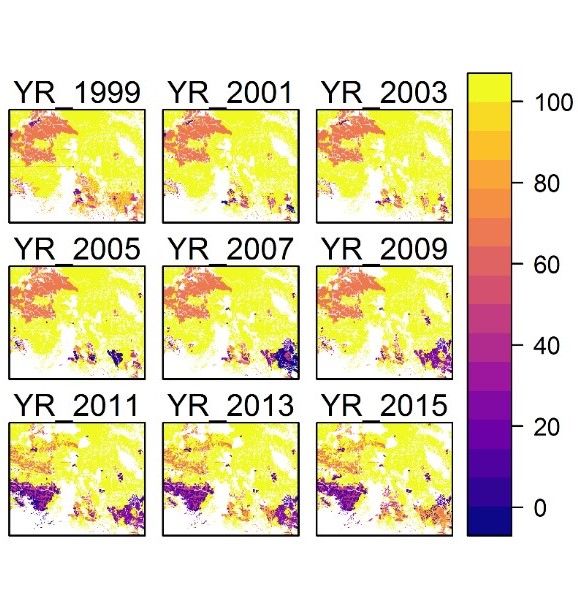Bushfire management involves the use of planned burns to decrease fuel, while also considering the impact of fire on plants and animals. Although native species have evolved in the presence of fire, too much or too little fire in the landscape may adversely impact plants and animals. When developing plans to apply fire, information is needed to evaluate its impacts on species and vegetation communities. This includes understanding the effects of past planned fires and bushfires in combination with proposed use of fire in the future. Issues with timely access to relevant information has hampered this process. To address this, our project has developed an integrated risk assessment tool for use by fire planners.
This tool has been tailored for use by working closely with fire planners and other stakeholders to identify and review:

- how ecological values were considered in past fire management decisions
- potential indicators to estimate the impact of planned fire and bushfire on plants and animals
- what existing ecological data, models and risk assessment tools were suitable to include
- information gaps in how plants and animals respond to fire
We packed up all the ecological data, models and analysis tools into a web-based browser called the Fire Analysis Module for Ecological values (FAME). It allows users to evaluate the impact of different fire management strategies on ecological objectives, and automates documentation of (i) data inputs, (ii) key decision points undertaken as part of the analyses and (iii) standard outputs. For example, FAME can show how the relative abundance of a species changes in response to fire in the landscape over time and space. This enables fire planners to easily evaluate the impacts of alternative fire regimes on a species.
Currently DEECA fire planners are using FAME to support fire management planning across the state. The use of this tool will facilitate more effective and transparent consideration of ecological values in strategic fire management decisions.
This project is a collaboration between researchers from ARI, University of Melbourne, and La Trobe University.
Funding was provided by Forests, Fire and Regions Group in DEECA through the Emergency Risk Management Research agreement with the Bushfire and Natural Hazards CRC.
The following report details the decision framework that underpinned the development of FAME. The report is included in the Fire research and adaptive management publication series under the theme Ecosystem, monitoring and resilience (for other publications in this series see DEECA's Forest and Fire Management website).
- Rumpff, L., Amos, N. and MacHunter, J. (2019) Framework for using and updating ecological models to inform bushfire management planning. Final report. Policy and Planning Division, Forest, Fire and Regions. Department of Environment, Land, Water and Planning, Melbourne
(accessible version (DOCX, 6.7 MB))
For more information contact: josephine.machunter@deeca.vic.gov.au, nevil.amos@deeca.vic.gov.au (ARI) or Libby Rumpff (University of Melbourne) lrumpff@unimelb.edu.au
Page last updated: 28/10/24